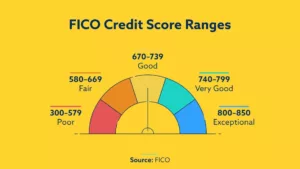Even with the best intentions, sometimes past due bills end up at a collection agency.
If your AT&T account has been sent to a collection agency, it means that you have an outstanding debt that needs to be addressed.
Steps to Take When Your AT&T Account Goes To A Collection Agency
Whether it’s your AT&T cell phone, internet, or landline account, here are the basic steps to take when AT&T sends you to a collection agency:
1. Request a Debt Validation Letter
Ask the collection agency to provide a written validation of the debt. This letter should include details about the debt, the original amount owed, the date of the debt, and your rights as a consumer. By law, they must provide this information upon request under the federal law.
2. Communicate with the Collection Agency
If the debt has been validated and it’s actually your debt consider contacting the collection agency to discuss the debt. Be polite and professional in your communication which should be in writing. Inquire about options for resolving the debt, such as setting up a payment plan, negotiating a settlement or a pay for deletion if the collection agency has been placed on your credit reports.
3. Negotiate a Settlement
If you are unable to pay the full amount, try negotiating a settlement for a lower sum. Collection agencies may be willing to accept a reduced amount to settle the debt. In fact, if the debt is older, you may be able to settle for pennies on the dollar.
4. Check for Errors
Review the debt information for any errors. If you believe there is an error, dispute the collection account with the collection agency, with the credit bureaus or both, and provide any supporting documentation.
5. Check the Statute of Limitations
Be aware of the statute of limitations on debt in your state. Once the statute of limitations expires, outdated debt may become uncollectible. However, this doesn’t erase the debt from your credit report unless it is past the 7 years debt is allowed to report.
6. Request a Pay-for-Delete Agreement
If the debt is yours and no errors have occurred, consider paying the debt. Some collection agencies may agree to a pay-for-delete arrangement, where they remove the negative information from your credit report once you’ve paid the debt.
Note that not all agencies will agree to this, and it’s not a guaranteed solution.
7. Keep Documentation
Maintain records of all communication with the collection agency, including letters, emails, and any agreements reached. This documentation can be useful in case of any disputes or if you need to reference the terms of your agreement.
8.Hire a Credit Repair Company
Credit repair companies have experience with many collection agencies and know how they work. A credit repair company may have inside information that can help you manage the collection account plus fix your credit history.
9. Seek Legal Advice
If you encounter difficulties resolving the debt, consider seeking legal advice. You may consult with a consumer protection attorney to understand your rights and explore possible legal remedies.
Remember to stay proactive and communicate with the collection agency to find a resolution that works for both parties. Ignoring the debt can have negative consequences on your credit score and financial standing.


















